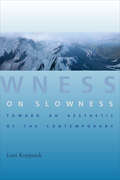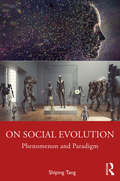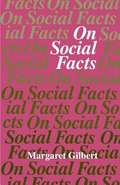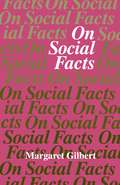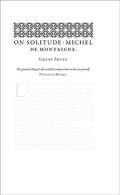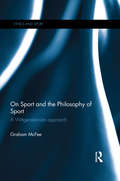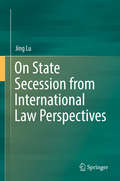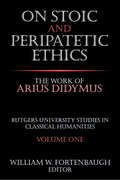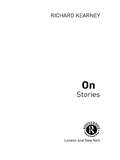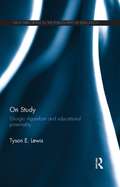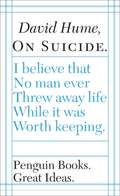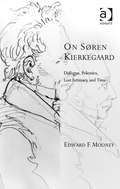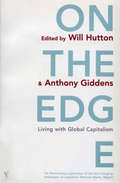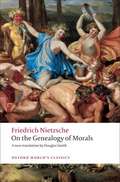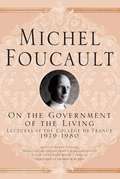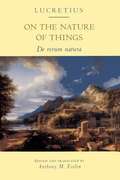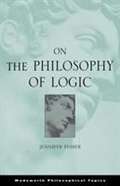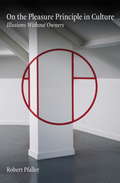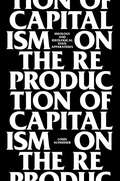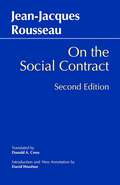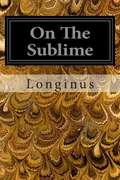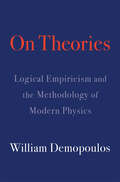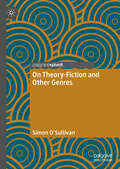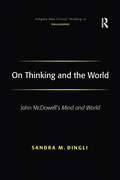- Table View
- List View
On Slowness: Toward an Aesthetic of the Contemporary (Columbia Themes in Philosophy, Social Criticism, and the Arts)
by Lutz KoepnickSpeed is an obvious facet of contemporary society, whereas slowness has often been dismissed as conservative and antimodern. Challenging a long tradition of thought, Lutz Koepnick instead proposes we understand slowness as a strategy of the contemporary—a decidedly modern practice that gazes firmly at and into the present's velocity.As he engages with late twentieth- and early twenty-first-century art, photography, video, film, and literature, Koepnick explores slowness as a critical medium to intensify our temporal and spatial experiences. Slowness helps us register the multiple layers of time, history, and motion that constitute our present. It offers a timely (and untimely) mode of aesthetic perception and representation that emphasizes the openness of the future and undermines any conception of the present as a mere replay of the past. Discussing the photography and art of Janet Cardiff, Olafur Eliasson, Hiroshi Sugimoto, and Michael Wesely; the films of Peter Weir and Tom Tykwer; the video installations of Douglas Gordon, Willie Doherty, and Bill Viola; and the fiction of Don DeLillo, Koepnick shows how slowness can carve out spaces within processes of acceleration that allow us to reflect on alternate temporalities and durations.
On Social Evolution: Phenomenon and Paradigm
by Shiping TangTang provides a coherent and systematic exploration of social evolution as a phenomenon and as a paradigm. He critically builds on existing discussions on social evolution, while drawing from a wide range of disciplines, including archaeology, evolutionary anthropology, sociology, economics, political science, the philosophy of social sciences, and evolutionary biology. Clarifying the relationship between biological evolution and social evolution, Tang lays bare the ontological and epistemological principles of the social evolutionary paradigm. He also presents operational principles and tools for deploying this paradigm to understand empirical puzzles about human society. This is a vital resource for students, practitioners, and philosophers of all social sciences.
On Social Facts
by Margaret GilbertAre social groups real in any sense that is independent of the thoughts, actions, and beliefs of the individuals making up the group? Using methods of philosophy to examine such longstanding sociological questions, Margaret Gilbert gives a general characterization of the core phenomena at issue in the domain of human social life. After developing detailed analyses of a number of central everyday concepts of social phenomena--including shared action, a social convention, a group's belief, and a group itself--she proposes that the core social phenomena among human beings are "plural subject" phenomena. In her analyses Gilbert discusses the work of such thinkers as Emile Durkheim, Georg Simmel, Max Weber, and David Lewis. "Gilbert's book aims to . . . exhibit some general and structural features of the conceptual scheme in terms of which we think about social groups, collective action, social convention, and shared belief. . . . [It] offers an important corrective to individualistic thinking in the social sciences. . . . "--Michael Root, Philosophical Review "In this rich and rewarding work, Margaret Gilbert provides a novel and detailed account of our everyday concepts of social collectivity. In so doing she makes a seminal contribution to . . . some vexed issues in the philosophy of social science. . . . [An] intellectually pioneering work. "--John D. Greenwood, Social Epistemology
On Social Facts (International Library Of Philosophy)
by Margaret GilbertAre social groups real in any sense that is independent of the thoughts, actions, and beliefs of the individuals making up the group? Using methods of philosophy to examine such longstanding sociological questions, Margaret Gilbert gives a general characterization of the core phenomena at issue in the domain of human social life. After developing detailed analyses of a number of central everyday concepts of social phenomena--including shared action, a social convention, a group's belief, and a group itself--she proposes that the core social phenomena among human beings are "plural subject" phenomena. In her analyses Gilbert discusses the work of such thinkers as Emile Durkheim, Georg Simmel, Max Weber, and David Lewis. "Gilbert's book aims to ... exhibit some general and structural features of the conceptual scheme in terms of which we think about social groups, collective action, social convention, and shared belief.... [It] offers an important corrective to individualistic thinking in the social sciences...."--Michael Root, Philosophical Review "In this rich and rewarding work, Margaret Gilbert provides a novel and detailed account of our everyday concepts of social collectivity. In so doing she makes a seminal contribution to ... some vexed issues in the philosophy of social science.... [An] intellectually pioneering work."--John D. Greenwood, Social Epistemology
On Solitude
by Michel De MontaigneFor the true bibliophile and design-savvy book lover, here is the next set of Penguin's celebrated Great Ideas series by some of history's most innovative thinkers. Acclaimed for their striking and elegant package, each volume features a unique type-driven design that highlights the bookmaker's art. Offering great literature and great design at great prices, this series is ideal for readers who want to explore and savor the Great Ideas that have shaped our world.
On Space and Time
by Shahn MajidWhat is the true nature of space and time? These concepts are at the heart of science, but they remain deeply wrapped in enigma. Their structure at both the smallest pre-subatomic and the largest cosmological levels continues to defy modern physics and may require revolutionary new ideas for which science is still grasping. This unique volume brings together world leaders in cosmology, particle physics, quantum gravity, mathematics, philosophy and theology, to provide fresh insights into the deep structure of space and time. Andrew Taylor explains the evidence for dark matter and dark energy. Shahn Majid argues that space and time should be quantum. Roger Penrose explains what in his view comes before the 'Big Bang'. Alain Connes argues that matter is geometry as a fine structure to spacetime. Michael Heller explores the philosophical and theological implications of spacetime. John Polkinghorne argues for a theory of how time unfolds.
On Sport and the Philosophy of Sport: A Wittgensteinian Approach (Ethics and Sport)
by Graham McFeeWhat is the ‘philosophy of sport’? What does one do to count as a practitioner in the philosophy of sport? What conception of philosophy underpins the answer to those questions? In this important new book, leading sport philosopher Graham McFee draws on a lifetime’s philosophical inquiry to reconceptualise the field of study. The book covers important topics such as Olympism, the symbolisation of argument, and epistemology and aesthetics in sport research; and concludes with a section of ‘applied’ sport philosophy by looking at rules and officiating. Using a Wittgensteinian framework, and employing a rich array of sporting examples throughout, McFee challenges the assumptions of traditional analytic philosophy regarding the completeness required of concepts and the exceptionlessness required of philosophical claims, providing the reader with a new set of tools with which to approach this challenging subject. On Sport and the Philosophy of Sport is fascinating and important reading for any serious students or researchers of sport philosophy.
On State Secession from International Law Perspectives
by Jing LuThis book provides essential legal information on state secession in an innovative manner: unlike conventional approaches, which invariably focus on whether there is a right to secession, here the discussion centers on how secessionist conflicts can be effectively resolved. To that end, the book not only reveals the inadequacy of the current international legal framework, but also carefully considers how relevant actors can work to improve the legal system. In short, it argues that secessionists and non-secessionists should conclude an agreement to reconcile their conflicting rights to self-determination, while external actors should do their utmost to ensure the success of these efforts. Positive external involvement requires external actors to refrain from the use of force and to participate more rationally in secessionist conflicts. Given its subject matter, the book will appeal to a broad readership, including students and researchers in international law, international relations and ethnic studies, as well as enthusiasts in these fields.
On Stoic and Peripatetic Ethics: The Work of Arius Didymus (Rutgers University Studies In Classical Humanities #Vol. 1)
by David RiesmanProviding the only full-length study of the compendium of Greek philosophy attributed to Arius Didymus, court philosopher to the Roman emperor Caesar Augustus, this volume elucidates Stoic and Peripatetic ethics for classicists and philosophers. The authors provide careful textual analysis of important passages by this synthesizer of the major schools of Greek thought. Essays include translations of major passages.
On Stories (Thinking in Action)
by Richard KearneyStories offer us some of the richest and most enduring insights into the human condition and have preoccupied philosophy since Aristotle. On Stories presents in clear and compelling style just why narrative has this power over us and argues that the unnarrated life is not worth living. Drawing on the work of James Joyce, Sigmund Freud's patient 'Dora' and the case of Oscar Schindler, Richard Kearney skilfully illuminates how stories not only entertain us but can determine our lives and personal identities. He also considers nations as stories, including the story of Romulus and Remus in the founding of Rome. Throughout, On Stories stresses that, far from heralding the demise of narrative, the digital era merely opens up new stories.
On Study: Giorgio Agamben And Educational Potentiality (New Directions in the Philosophy of Education)
by Tyson E. LewisIn an educational landscape dominated by discourses and practices of learning, standardized testing, and the pressure to succeed, what space and time remain for studying? In this book, Tyson E. Lewis argues that studying is a distinctive educational experience with its own temporal, spatial, methodological, aesthetic, and phenomenological dimensions. Unlike learning, which presents the actualization of a student’s "potential" in recognizable and measurable forms, study emphasizes the experience of potentiality, freed from predetermined outcomes. Studying suspends and interrupts the conventional logic of learning, opening up a new space and time for educational freedom to emerge. Drawing upon the work of Italian philosopher and critical theorist Giorgio Agamben, Lewis provides a conceptually and poetically rich account of the interconnections between potentiality, freedom, and study. Through a mixture of educational critique, phenomenological description, and ontological analysis, Lewis redeems study as an invaluable and urgent educational experience that provides alternatives to the economization of education and the cooptation of potentiality in the name of efficiency. The resulting discussion uncovers multiple forms of study in a variety of unexpected places: from the political poetry of Adrienne Rich, to tinkering classrooms, to abandoned manifestos, and, finally, to Occupy Wall Street. By reconnecting education with potentiality this book provides an educational philosophy that undermines the logic of learning and assessment, and turns our attention to the interminable paradoxes of studying. The book will be key reading for scholars in the fields of educational philosophy, critical pedagogy, foundations of education, composition and rhetoric, and critical thinking and literacy studies.
On Suicide (Penguin Great Ideas)
by David HumeOne of the most important thinkers ever to write in English, the Empiricist David Hume liberated philosophy from the superstitious constraints of religion; here, he argues that all are free to choose between life and death, considers the nature of personal taste and succinctly criticises common philosophies of the time.
On Søren Kierkegaard: Dialogue, Polemics, Lost Intimacy, and Time (Transcending Boundaries in Philosophy and Theology)
by Edward F. MooneyTracing a path through Kierkegaard's writings, this book brings the reader into close contact with the texts and purposes of this remarkable 19th century Danish writer and thinker. Kierkegaard writes in a number of voices and registers: as a sharp observer and critic of Danish culture, or as a moral psychologist, and as a writer concerned to evoke the religious way of life of Socrates, Abraham, or a Christian exemplar. In developing these themes, Mooney sketches Kierkegaard's Socratic vocation, gives a close reading of several central texts, and traces 'The Ethical Sublime' as a recurrent theme. He unfolds an affirmative relationship between philosophy and theology and the potentialities for a religiousness that defies dogmatic creeds, secular chauvinisms, and restrictive philosophies.
On The Edge
by Anthony GiddensCapitalism has become the universal social and economic order of our time. The capitalism of today, however, differs from that of previous eras; with intensifying globalisation, flexible organisations, and new forms of class divisions. Globalisation brings new possibilities, but also new risks, ranging from degradation of the environment to the concentrated control of the media. On the Edge comprises original essays by, among others, Polly Toynbee, Richard Senett and George Soros. They chart the contours of contemporary capitalism, analyse the role of the business firm, and consider whether the new capitalism is compatible with social cohesion and social justice. They discuss capitalism both as a form of culture and as an influence on daily life, and ask if capitalism has any viable rivals at the turn of the millennium.
On The Genealogy Of Morals: A Polemic. By Way Of Clarification And Supplement To My Last Book Beyond Good And Evil (Oxford World's Classics)
by Friedrich Nietzsche Douglas Smith<P>Reason, seriousness, mastery over the emotions, the whole murky affair which goes by the name of thought, all the privileges and showpieces of man: what a high price has been paid for them! How much blood and horror is at the bottom of all "good things!"' On the Genealogy of Morals (1887) is a book about the history of ethics and about interpretation. Nietzsche rewrites the former as a history of cruelty, exposing the central values of the Judaeo-Christian and liberal traditions - compassion, equality, justice - as the product of a brutal process of conditioning designed to domesticate the animal vitality of earlier cultures. <P>The result is a book which raises profoundly disquieting issues about the violence of both ethics and interpretation. Nietzsche questions moral certainties by showing that religion and science have no claim to absolute truth, before turning on his own arguments in order to call their very presuppositions into question.<P> The Genealogy is the most sustained of Nietzsche's later works and offers one of the fullest expressions of his characteristic concerns. <P>This edition places his ideas within the cultural context of his own time and stresses the relevance of his work for a contemporary audience. <P>ABOUT THE SERIES: For over 100 years Oxford World's Classics has made available the widest range of literature from around the globe. <P>Each affordable volume reflects Oxford's commitment to scholarship, providing the most accurate text plus a wealth of other valuable features, including expert introductions by leading authorities, helpful notes to clarify the text, up-to-date bibliographies for further study, and much more.
On The Government Of The Living: Lectures At The Collège De France, 1979-1980
by Michel Foucault Graham Burchell Arnold I. DavidsonWith these lectures Foucault inaugurates his investigations of truth-telling in the ethical domain of practices of techniques of the self. How and why, he asks, does the government of men require those subject to power to be subjects who must tell the truth about themselves?
On The Nature Of Things
by Lucretius Anthony M. EsolenTitus Lucretius Carus was probably born in the early first century B.C., and died in the year 55. Little is known of his life, although two tantalizing bits of gossip were passed on by St. Jerome: that he was poisoned by a madness-inducing aphrodisiac given him by his wife, and that his great poem On the Nature of Things was posthumously edited by Cicero. For the latter assertion, writes Anthony Esolen in his introduction to the present volume, there is little evidence, and none whatsoever for the former.
On The Philosophy Of Logic
by Jennifer FisherJennifer Fisher's ON THE PHILOSOPHY OF LOGIC explores questions about logic often overlooked by philosophers. Which of the many different logics available to us is right? How would we know? What makes a logic right in the first place? Is logic really a good guide to human reasoning? An ideal companion text for any course in symbolic logic, this lively and accessible book explains important logical concepts, introduces classical logic and its problems and alternatives, and reveals the rich and interesting philosophical issues that arise in exploring the fundamentals of logic. THE WADSWORTH PHILOSOPHICAL TOPICS SERIES (under the general editorship of Robert Talisse, Vanderbilt University) presents readers with concise, timely, and insightful introductions to a variety of traditional and contemporary philosophical subjects. With this series, students of philosophy will be able to discover the richness of philosophical inquiry across a wide array of concepts, including hallmark philosophical themes and themes typically underrepresented in mainstream philosophy publishing. Written by a distinguished list of scholars who have garnered particular recognition for their excellence in teaching, this series presents the vast sweep of today's philosophical exploration in highly accessible and affordable volumes. These books will prove valuable to philosophy teachers and their students as well as to other readers who share a general interest in philosophy.
On The Pleasure Principle In Culture
by Robert PfallerFor many illusions, it is easy to find owners - people who proudly declare that they believe in things such as life after death, human reason, and self-regulation of financial markets. Yet there are also different kinds of illusions at work, for example, in art: trompe l'oeil-painting pleases its observers with "anonymous illusions" - illusions where it is not entirely clear who exactly it is that should be deceived.Anonymous illusions offer a universal pleasure principle within culture: they are present in games, sport, design, eroticism, manners, charm, beauty, etc. However it seems that this pleasure principle is increasingly subjected to misrecognition: the proud proprietors of certain illusions are no longer capable of recognizing that they too follow anonymous illusions. As a consequence, they mistake happy, polite others for naïve idiots or "savages" - as owners of stupid illusions; and consider their happiness an obscene intrusion - as something in which they could never share.Pfaller explores the strange properties of these shared illusions, and finds that they have a central and crucial role in our culture--and we need to better understand them in order to protect the public sphere.
On The Reproduction Of Capitalism
by Etienne Balibar Louis AlthusserLouis Althusser's renowned short text 'Ideology and Ideological State Apparatuses' radically transformed the concept of the subject, the understanding of the state and even the very frameworks of cultural, political and literary theory. The text has influenced thinkers such as Judith Butler, Ernesto Laclau and Slavoj i ek. The piece is, in fact, an extract from a much longer book, On the Reproduction of Capitalism, until now unavailable in English. Its publication makes possible a reappraisal of seminal Althusserian texts already available in English, their place in Althusser's oeuvre and the relevance of his ideas for contemporary theory. On the Reproduction of Capitalism develops Althusser's conception of historical materialism, outlining the conditions of reproduction in capitalist society and the revolutionary struggle for its overthrow. Written in the afterglow of May 1968, the text addresses a question that continues to haunt us today: in a society that proclaims its attachment to the ideals of liberty and equality, why do we witness the ever-renewed reproduction of relations of domination? Both a conceptually innovative text and a key theoretical tool for activists, On the Reproduction of Capitalism is an essential addition to the corpus of the twentieth-century Left.From the Trade Paperback edition.
On The Social Contract
by Jean-Jacques RousseauThis new edition features a revision by Donald A. Cress of his bestselling 1987 translation of On the Social Contract together with an Introduction, footnotes, <p><p>and chronology by David Wootton, one of our leading historians of the Enlightenment.
On The Sublime
by Benjamin Jowett LonginusSaint Longinus' writing On The Sublime has been considered a classic since it was first written and remains a piece worth reading.
On Theories: Logical Empiricism and the Methodology of Modern Physics
by William DemopoulosA renowned philosopher’s final work, illuminating how the logical empiricist tradition has failed to appreciate the role of actual experiments in forming its philosophy of science. The logical empiricist treatment of physics dominated twentieth-century philosophy of science. But the logical empiricist tradition, for all it accomplished, does not do justice to the way in which empirical evidence functions in modern physics. In his final work, the late philosopher of science William Demopoulos contends that philosophers have failed to provide an adequate epistemology of science because they have failed to appreciate the tightly woven character of theory and evidence. As a consequence, theory comes apart from evidence. This trouble is nowhere more evident than in theorizing about particle and quantum physics. Arguing that we must consider actual experiments as they have unfolded across history, Demopoulos provides a new epistemology of theories and evidence, albeit one that stands on the shoulders of giants. On Theories finds clarity in Isaac Newton’s suspicion of mere “hypotheses.” Newton’s methodology lies in the background of Jean Perrin’s experimental investigations of molecular reality and of the subatomic investigations of J. J. Thomson and Robert Millikan. Demopoulos extends this account to offer novel insights into the distinctive nature of quantum reality, where a logico-mathematical reconstruction of Bohrian complementarity meets John Stewart Bell’s empirical analysis of Einstein’s “local realism.” On Theories ultimately provides a new interpretation of quantum probabilities as themselves objectively representing empirical reality.
On Theory-Fiction and Other Genres
by Simon O'SullivanThis book looks at three different kinds of writing practice - theory-fiction, autofiction/autotheory and art writing - that are increasingly prevalent as genres (or ‘hybrid genres’) in the arts and critical humanities. The chapters in the book operate as a critical survey of these new forms of writing (many examples are listed) whilst at the same time they each work towards some provisional definitions. Some key precursors to these new genres are also identified. The book explores what these new kinds of writing do. What is particular to them or what do they add to those already existing styles and genres (and especially the academic essay and article)? Key here is that each form of writing works in a performative manner or as a device that enables a shift in perspective. A case is made for their urgency in relation to contemporary issues and concerns and for their importance in terms of being both from and for more marginalised communities. The book concludes with a discussion of machine writing and especially our collaboration with artificial intelligence language models.
On Thinking and the World: John McDowell's Mind and World (Ashgate New Critical Thinking in Philosophy)
by Sandra M. DingliJohn McDowell's Mind and World has, since its publication in 1994, become a seminal text, putting forward many new ideas on the manner in which concepts mediate the relation between minds and the world. Yet McDowell's ideas are not easy to comprehend. In this book Sandra Dingli both elaborates and simplifies McDowell's ideas in order to give greater clarity to them and to assist in the understanding and appreciation of his work. Dingli selects five particular contemporary philosophical topics which McDowell deals with and investigates in detail the implications of particular points of view, analysing the current literature on each topic and drawing out shortcomings and possibilities for overcoming them. This work is, then, both a critique and complement to McDowell's text. McDowell's project is to dissolve a number of dualisms such as sensibility and understanding, conceptual and non conceptual content, scheme and content, and reason and nature. Dingli critically analyses each of these and claims that a proper understanding of the philosophical method of quietism is important for a correct understanding of this text, concluding that McDowell does not go far enough in his attempt to attain peace for philosophy as traditional dichotomies such as that of realism and anti-realism still appear to exert a grip on his thinking.
